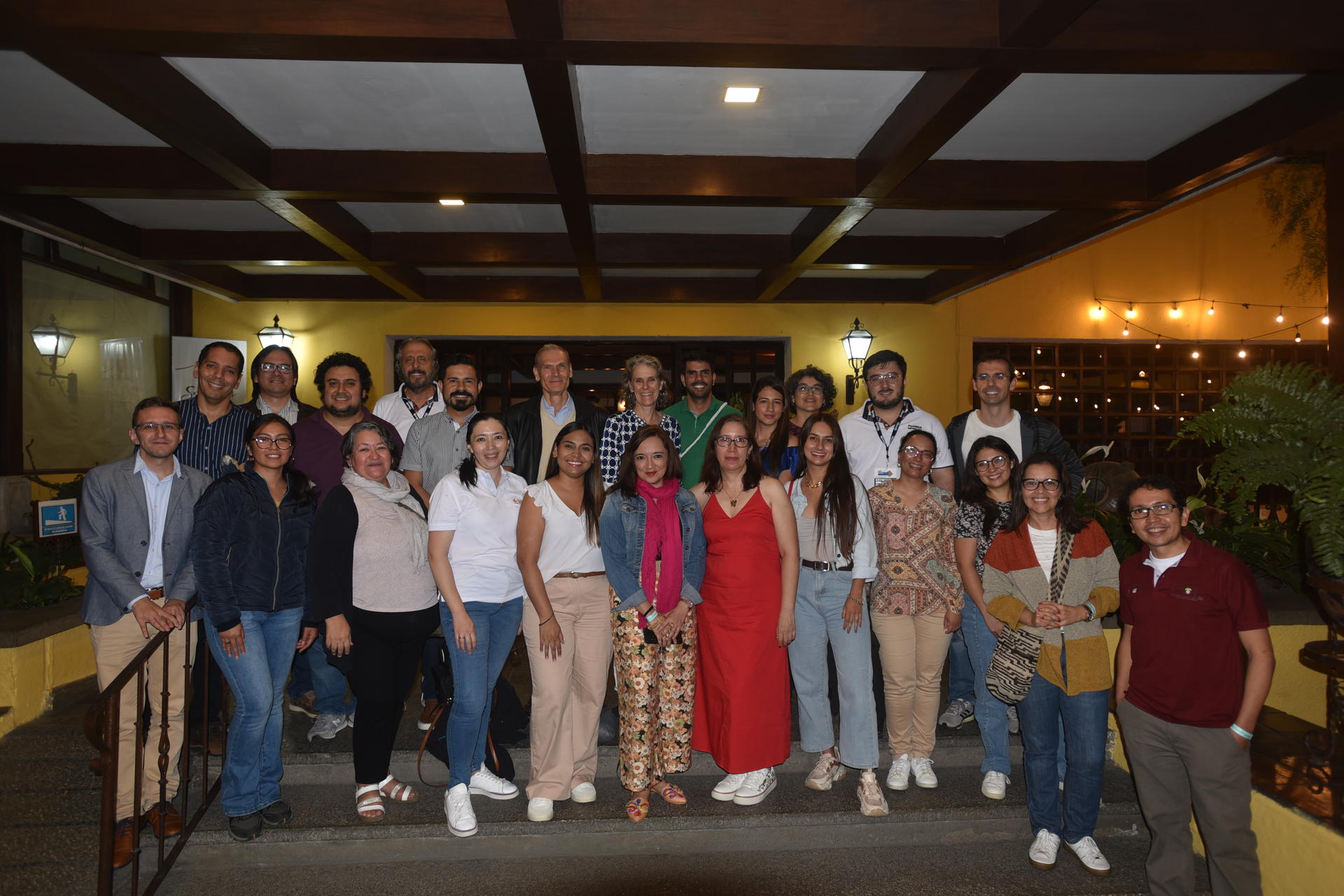Blog Moving Forward Together: Commitments, Achievements and Revonation of the Central American Rice Research Network at the LVX PCCMCA Meeting.

By: Leidy Sandoval and Tatiana Rivera
At the LXV PCCMCA Meeting in June 2023 in Guatemala, the rice program participated in the technical roundtable, achieving the reestablishment of a network of research partners to genetically improve rice. During the session, key issues were addressed, facilitating interaction among research actors and laying the groundwork for renewed collaboration.

Central America faces several challenges in terms of food security and adaptation to climate change, with the rural sector being one of the most affected. This situation is reflected in slower progress towards the achievement of the Sustainable Development Goals, especially with regard to the eradication of poverty and hunger.
In this context, rice plays a crucial role, as it constitutes the fourth food with the highest caloric contribution, providing 10% of daily caloric intake. However, the region is significantly dependent on rice imports.
It is therefore imperative to continue research efforts and strengthen the network of actors to develop more competitive and productive rice varieties. These varieties should be adapted to the changing climatic conditions of the region. Moreover, this approach would not only boost food security, but also create new market opportunities for farmers. As is the case in Costa Rica, with the Palmar 18 variety and the development of products for niche market segments.
"The collaboration between CIAT and national partners in Central America for rice breeding has always been very productive. We see the trial network as a key component of the strategy to provide improved varieties to farmers and strengthen capacities in the region," said Jérôme Bartholomé, CIRAD scientist in the Bioversity-CIAT Alliance.
A first step towards the recovery of such networks was the LXV PCCMCA Meeting (Central American Cooperative Program for Crop and Animal Improvement) that took place the last week of June 2023, with the participation of more than 250 representatives from countries such as Canada, Costa Rica, Colombia, Cuba, Dominican Republic, Ecuador, El Salvador, Guatemala, Honduras, Mexico, Nicaragua, Panama, Peru, Puerto Rico and the United States. During the event, the rice program of the Bioversity and CIAT alliance participated in the technical roundtable on grains.
At the rice table, INIAS researchers from Guatemala, El Salvador, Honduras, Panama, and Costa Rica expressed their views and needs. The loss of communication and germplasm exchange with the different Central American countries after the end of Harvest Plus funding was highlighted, however, there is a latent interest in germplasm exchange. Therefore, the countries requested to receive materials and training, and the possibility of resources through the different centers was mentioned.
The CIAT rice program proposed sharing germplasm on a regular basis, participating in data collection, genotyping of material and scheduling collaborative crosses. They also proposed a work agenda, sending the same nursery for genotype comparisons by environment, and the use of a more specific genotyping platform.
The specific requirements of each country were discussed:
- Guatemala: Yield, competitiveness, nutrition, resistance to pyricularia, milling quality and a visit to CIAT.
Guatemala: Yield, competitiveness, nutrition, resistance to pyricularia, milling quality and a visit to CIAT. - El Salvador: Yield, Rhizoctonia, milling quality (Cinta a6), use of non-advanced populations of elite crosses and presentation of current varieties with characteristics.
Commitments from research centers were established, including sending data with released lines and varieties, interest in japonica, testing of 50 lines for the year and a shipping agenda to accelerate processes. In summary, the meeting highlighted the importance of international collaboration and outlined specific commitments and requirements to improve rice production in the region, focused on identifying and leveraging new market segments.
At present, thanks to the interest shown by the different countries, the CIAT rice program reestablished a network of partners with research centers in Central American countries such as ICTA in Guatemala, CENTA - El Salvador, DICTA - Honduras and CIGRAS - Costa Rica sending a nursery of 50 advanced lines to evaluate in different environments, in addition, a training day was held at the campus in Palmira, Colombia and is expected to continue in a constant exchange of both germplasm and information.
